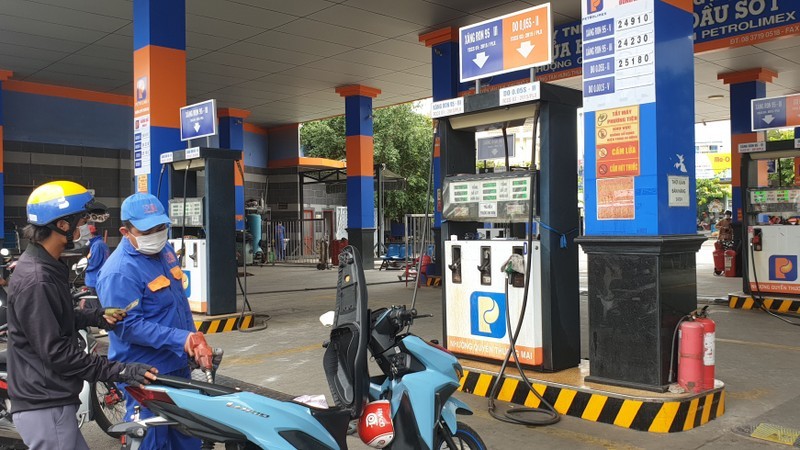 |
A petrol station in HCMC. (Photo: SGGP) |
Vietnam Electricity (EVN) was told to speed up the construction and implementation of major power projects, including renewable energy, to ensure enough power for the country's crucial industries. In addition, priority should be given to connecting isolated and remote communes to the national power and telecommunication networks.
MoIT, the ministry in charge of Vietnam's power sector, was told to quickly finish and submit the country's Power Planning VIII to the central government for review.
The PM said the country's top priority in the short term is to focus on boosting exports, especially agriculture products to China and neighboring countries, to maintain momentum for economic recovery.
Fuel market
Fuel prices should be adjusted every Thursday, with the only exception being the first, the second and the third day of the Tet holiday, said MoIT in its latest proposal to the government, along with several other measures in an attempt to better regulate the fuel market.
According to MoIT, shorter price cycles are better at keeping domestic prices closer to the global oil prices, even during holidays (except Tet) to minimize the risk of market disruptions. In the event of major changes in the international market, the central government reserves the right to intervene in the market to ensure the rights and benefits of businesses and consumers alike are well protected.
The proposal was a response to fuel traders' grievance last year over how long it took for prices to be adjusted in the domestic market, which often left them on the back foot with little preparation for significant hikes in global oil prices.
In addition, the ministry said it had started a process to review the current conditions for businesses to join the fuel market. Industry insiders and experts, in recent months, have been voicing conflicting opinions over the state of the current market regulations.
Reducing or easing entry barriers will likely result in a higher number of traders and retailers, increased competition, a step closer to a market-oriented system and by the central government's general policy to encourage the development of the private sector and small-to-medium-sized enterprises (SMEs).
On the other hand, raising entry barriers will likely help ensure standards set by the central government for fuel trading, which is expected to tighten in the coming years.
The ministry said it currently favors a middle option to maintain most, if not all, of the current conditions, but they must be streamlined and clearly defined to avoid confusion and misinterpretation, and encourage the private sector to participate in the market.
"It's our opinion that the current conditions have served well in monitoring and managing the domestic fuel market," said a spokesperson from the ministry.
Vietnam's domestic fuel market is under the management of a joint mechanism between the MoIT and the Ministry of Finance, with the former overseeing day-to-day activities.
The mechanism has long been criticized as inefficient and slow to adapt to major market events, as made evident last year when a series of disruptions took place in the global oil market, which resulted in long waits at the pumps and several fuel stations shutting down across the country.
























